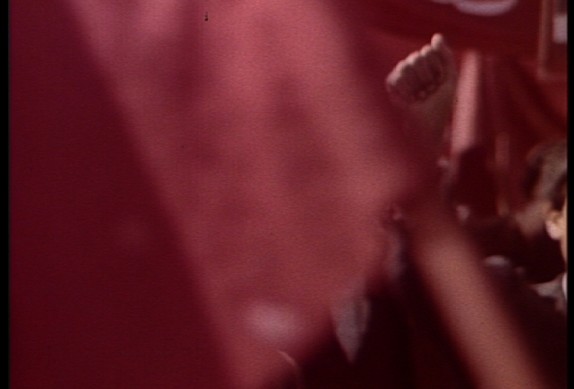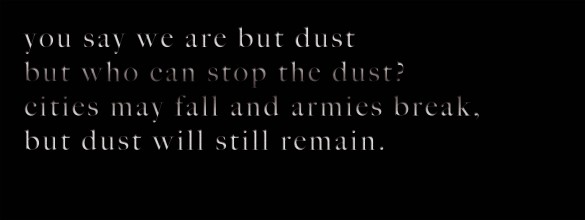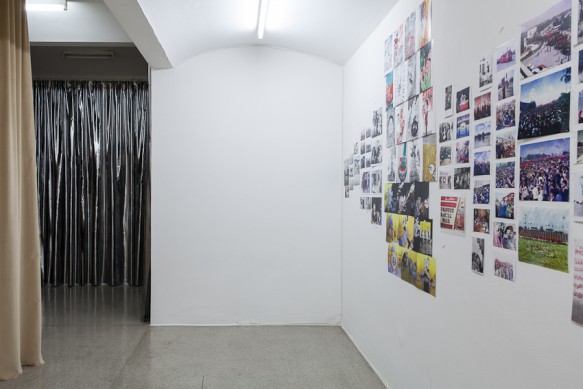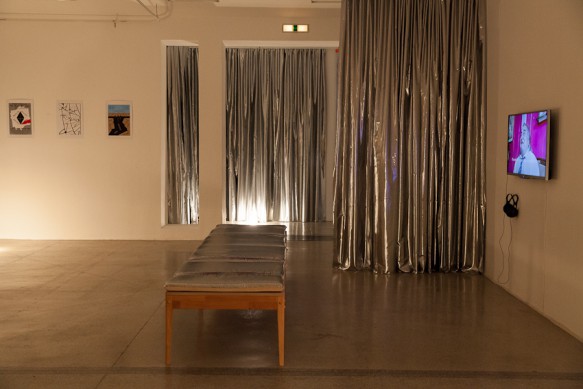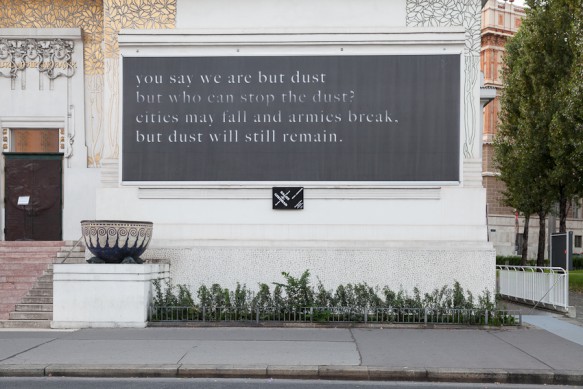Salon-e-Girdbad
Mariam Ghani
17.09. - 23.09.2014
more
In the Salon of the Whirlwind, inspired by Kandahar’s mid-century Salon-e-Girdbad, we will use three unfinished Afghan feature films from different moments of the Communist period (early, middle and late) as the focal points for an exploration of how the Afghan Communist project disintegrated. We will trace this history through the desires and fears reflected in the films, and also through a series of supplementary materials and discussions, including newsreels, interviews, and a visual timeline of the entire period, constructed from archival photographs and propaganda posters. Finally, we will consider what it might mean to finish the unfinished projects, both artistic and political: these unfinished films, whose directors are still alive but have no access to their negatives, and also the unfinished political projects encoded in the films, the contrary projects of revolution and reconciliation. And we will ask: is it possible for utopian ideals to survive the whirlwind?
Archival images from Afghan Films, the Afghanistan Center at Kabul University (Nancy Hatch Dupree, Louis Dupree, and Jean Stewart collections), and an anonymous propaganda collection . Archival films from Afghan Films, including newsreels and raw footage 1978-79 (the Red Tapes collection), an excerpt from Farar / Escape (Eng. Latif Ahmadi, 1985), Those Who Fire (1989), and The House of History (Qader Tahiri, 1996). Interviews with Khwaja Ahmad Shah Siddiqi, Juwansher Haidary and Faqir Nabi, conducted by Nabila Horakhsh, Mariam Ghani, and Zainab Haidary, translated by Rajni Prakash at Pad.ma. Film posters by Mariam Ghani, Edith Poirier & Daniele Rossi.
Events
September 17, 7 pm
opening
Saturday, September 20th & Sunday, September 21st, 4 pm
Screening of never-before-seen footage from three unfinished feature films from Afghanistan’s Communist period, followed by Afghan tea service and informal discussion with Mariam Ghani, political scientist Abassin Nessar, and Peter Taylor (Rotterdam Film Festival). Roughly 30 minutes of each film will be presented in a new cut, assembled by Ghani from the black-and-white, silent rush prints based on interviews with the directors and actors. On Saturday September 20th, Ghani, Nessar and Taylor will be joined by Drs. Zamiruddin Mihanpoor and Parwin Zaher-Mihanpoor for a post-screening conversation about the political context and unfinished projects of the Parcham regime, which commissioned the films. On Sunday, September 21st, musicians from the radical free improv project 4 States Sessions will spontaneously improvise scores for the films, followed by a post-screening conversation about the radical potential of unfinished artistic projects. Featuring Emil Gross (percussion), Igor Gross (vibraphone), and Luca Kezdy (violin & effects).
Films
Almase Siah / The Black Diamond (Abdul Khalek Halil, 1984)
Starring Nuroshan Abir, Nassima Jalal, Abdullah Samadi, Asadullah Aram, Zarghuna Aram, Esturay Mangal, Qader Faroukh, Mari Omeid, and Farida
A man’s involvement with a gang of diamond smugglers leads to unfortunate consequences for his family, especially his rebellious teenage daughter. Almase Siah not only takes as its subject the trafficking that provided income for the mujahidin, but also replicates in some scenes specific stories that circulated during this period.
Soqoot / Falling (Faqir Nabi, 1986)
Starring Farid Fayz, Adela Adeem, Qader Faroukh, Esturay Mangal, Zarghuna Aram, Juwansher Haidary, Saboor Khinji, Said Mira, and Farida
A police officer goes undercover to infiltrate a criminal organization, but finds his new life dangerously seductive, and begins to have trouble balancing between truth and lies. Soqoot reflects the paranoia of the mid-1980s, when Afghanistan’s secret service (KhAD, mentored by the Stasi) was believed to have placed informants in every profession and neighborhood, through a story that turns on signifiers of surveillance: infiltration, eavesdropping, bugs and wiretaps, stakeouts with telephoto lenses, and always people watching each other, both openly and furtively.
Kaj Rah / Wrong Way (Juwansher Haidary, 1990)
Starring Farid Fayz, Estoray Mangal, Faqir Nabi, Habib Zorghai, Faif Azouly, Fay Ebadi, Mari Omeid, Asadullah Aram, Saboor Khinji, Faqir Kawider, Sharif Kheir Khwo, Tsang Chikan, and Homeira
The conflicts within and around a border village represent in miniature the conflicts of the war between regime and mujahidin, the personal ties between fighters on both sides, and the ways in which each has diverted from the right way or straight path. Kah Rah (which also translates as ‘crooked path’) was shot just before Najib’s ‘reconciliation jirga’ of 1991, and is part of the same mood swing towards reconciliation; its director originally planned to incorporate that historic meeting of Communists and mujahidin into the film itself.
